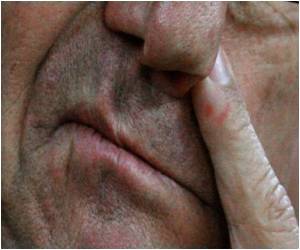Most patients with loss or reduced sense of smell do not seek medical help or advice and have learned to cope up with current sense of smell in their daily lives, says report.

Ilona Croy, M.D., and colleagues from the University of Dresden Medical School, Dresden, Germany, evaluated data from 470 individuals (235 patients with a reduced or no sense of smell and 235 individuals with a normal sense of smell) to compare the importance of olfaction in daily life. The study participants completed the Individual Importance of Olfaction Questionnaire (IO) and olfactory testing using the "Sniffin' Sticks" test kit. The questionnaire included items to reflect emotions, memories and evaluations that are triggered by the sense of smell; how much a person uses his or her sense of smell in daily life; and how many people use their sense of smell for decision making. The "Sniffin' Sticks" test kit consists of pen-like odor dispensers that were placed close to the participant's nostrils for a few seconds to assess odor identification ability.
"The main result of the present study is that patients with olfactory disorders rate the importance attached to their olfactory sense to be lower in general and also in all the investigated subscales compared with healthy normosmic subjects," the authors report. "Although they might not be aware, [they] seem to adjust to their olfactory constraints. Their sense of smell seems to be of less importance to them in daily life when it is reduced. So they report fewer olfactory-triggered emotions and memories, which seems reasonable because patients with olfactory disease experience fewer olfactory triggers. In accord, they also report to use their sense of smell less and to rely less on this sense in decision making."
"In conclusion, most patients attach less importance to their current sense of smell in daily life than do normosmic individuals and adjust to their reduced olfactory function. This behavior might be an example of regaining psychological health despite acquired and long-lasting impairments," the authors write.
Source-Eurekalert
 MEDINDIA
MEDINDIA



 Email
Email




